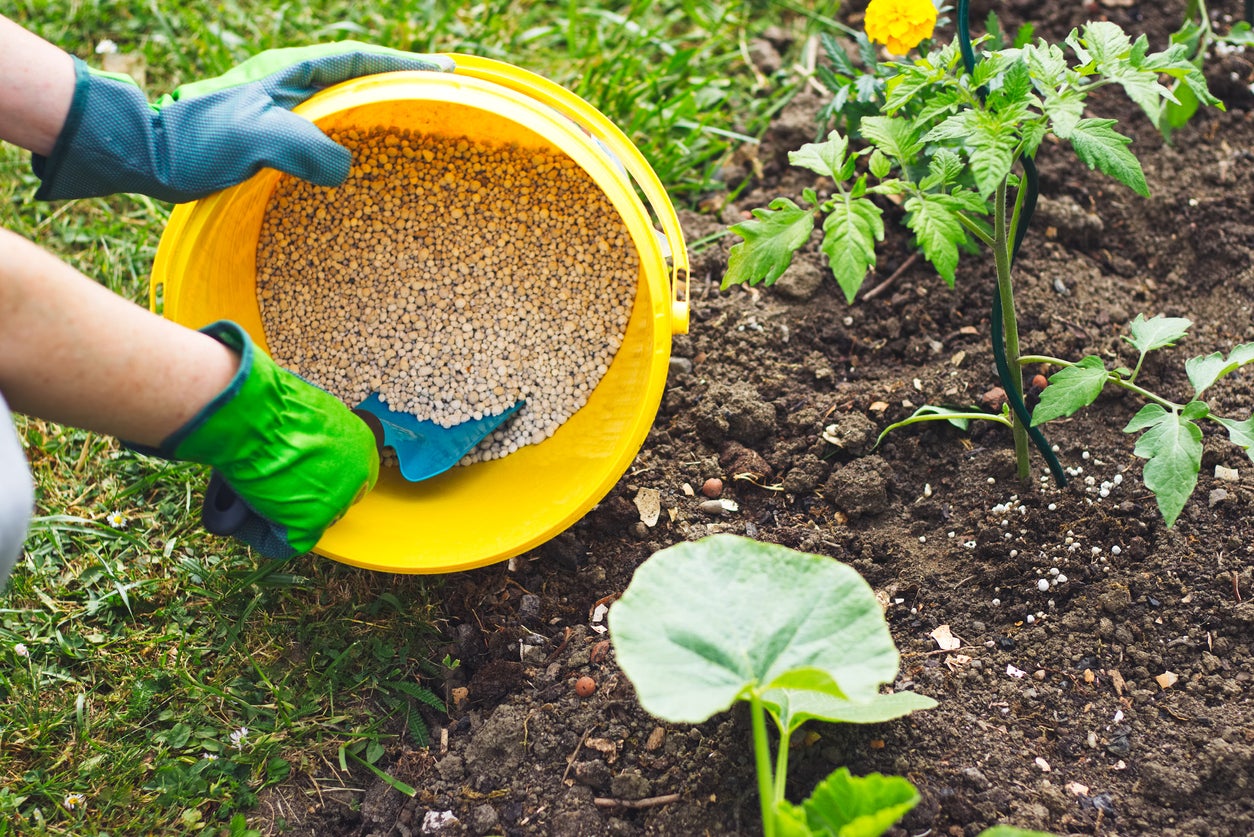Fertilizing Veggies: Fertilizer Options For Your Vegetable Garden

Fertilizing veggies is a must if you wish to get the highest yields and the best quality produce. There are a number of fertilizer options, and a soil test can help determine what specific types of fertilizer are needed. The most common recommendations for vegetable garden fertilizers are nitrogen and phosphorus, but these aren’t the only nutrients a healthy garden requires. Read on to learn more.
Choosing Fertilizer for Vegetables Gardens
Plants are composed primarily of carbon, hydrogen, and oxygen. These nutrients are absorbed from the air and water, but a fertile garden must have fourteen additional macro- and micro- nutrients for healthiest growth. A soil test will help determine which, if any, additional nutrients need to be supplemented to the plants in the form of vegetable garden fertilizers. Basically, there are two types of fertilizer for veggie gardens: inorganic (synthetic) and organic fertilizer for vegetable gardens.
Chemical Fertilizers for Veggies
Inorganic fertilizers for the vegetable garden are made from materials that have never lived. Some of these fertilizer options contain nutrients that can be immediately taken up by the plants, while others are created so the nutrients are released over time. If this is the fertilizer option for you, choose an inorganic fertilizer for vegetable gardens that is slow or controlled release.
When choosing an inorganic fertilizer, you will notice there are numbers on the packaging. These are commonly referred to as the NPK ratio. The first number is the percentage of nitrogen, the second the percentage of phosphorus, and the last number the amount of potassium in the fertilizer. Most veggies need a balanced fertilizer, such as a 10-10-10, but some need additional potassium while leafy greens often only require nitrogen.
Organic Fertilizers for Veggies
There are many types of organic fertilizers. Fertilizing veggies with organic fertilizer doesn’t harm the environment, as the ingredients found within are naturally derived from plants and animals.
Fertilizing veggies with manure is a common organic fertilizing method. The manure is incorporated into the soil prior to planting. The down side to using manure as a fertilizer is that the garden will need additional fertilization during the growing season. A similar option is to incorporate plenty of compost into the soil prior to planting.
Supplemental Fertilizers for Veggies
Since vegetables need nitrogen as well as other nutrients readily available, supplemental organic fertilizer is often applied for a quick feeding. This is often used in conjunction with other fertilizers. For instance, many gardeners supplement a compost or manure rich soil with the application of fish emulsion or manure tea.
Sign up for the Gardening Know How newsletter today and receive a free copy of our e-book "How to Grow Delicious Tomatoes".
Fish emulsion is rich in nitrogen but low in phosphorus. It is sprinkled around the plants every two to three weeks or as needed. Manure tea is a simple decoction to make. Put a few shovelfuls of manure into a porous bag and then steep the bag in a tub of water until it looks like weak tea. Use the manure tea when you water to add supplemental organic nutrients.
Another vegetable garden fertilizer option is to side dress your plants. Simply put, this means adding a nitrogen-rich organic fertilizer along the side of each row of plants. As the plants are watered, the roots absorb the nutrients from the fertilizer.

Amy Grant has been gardening for 30 years and writing for 15. A professional chef and caterer, Amy's area of expertise is culinary gardening.
